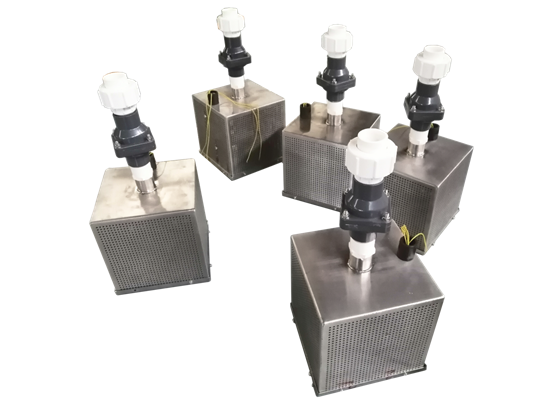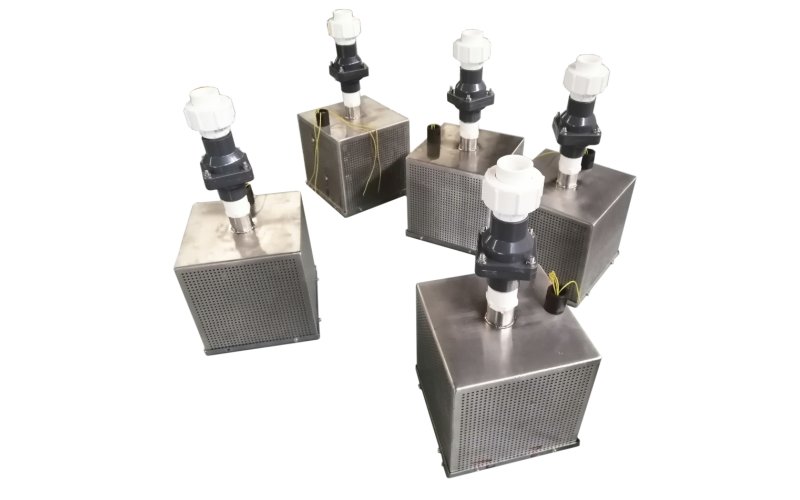The lifter is a container for sewage collection at the end, with built-in sensor. When the sewage reaches the specified level, the vacuum diaphragm valve is opened for suction. Different types of lifting devices are selected for different application scenarios, including wastewater lifter, wastewater lifter, floor drain lifter and other customized lifters. It can be selected according to different application scenarios.
Model | Name | Purpose | Flow | Maximum input power |
VAClift-WS | Vacuum sewage elevator | Collect domestic sewage | 5-30L/s | 3W |
VAClift-FS | Vacuum sewage elevator | Collection of miscellaneous domestic wastewater | 5-30L/s | 3W |
VAClift-DL | Vacuum sewage elevator | Collect floor drain waste water | 5-30L/s | 3W |
VAClift-WSJ | Vacuum sewage elevator | Sewage collection of single building | 5-30L/s | 3W |
The vacuum sewage lifting unit is used for domestic sewage discharge. The sewage can be collected by short-distance gravity flow, and then the sewage can be lifted by vacuum diaphragm valve assembly and vacuum pipeline.
The design of double pipeline and multi diaphragm valve can effectively prevent blocking.
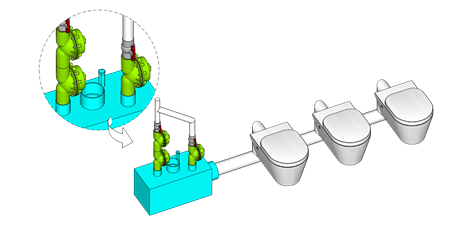
The vacuum waste water lifting unit is used to collect domestic miscellaneous waste water. It is designed with double diaphragm valve to effectively improve the reliability of the lifter. The specific connection diagram is as follows:
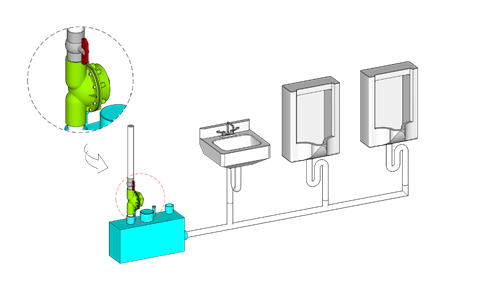
The vacuum floor drain lifting unit is used for the collection and discharge of sewage on the ground and other places. The specific link is shown in the following figure.
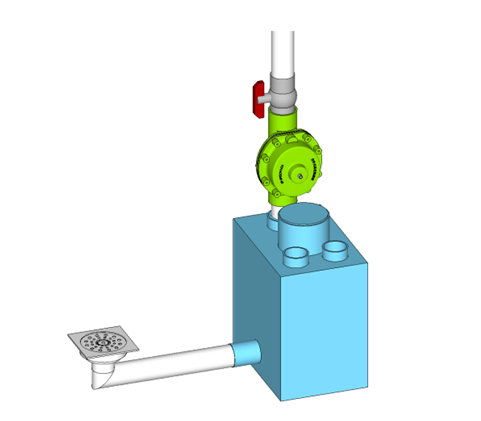
The lifting unit of filter screen is used to lift water in low-lying area, with built-in liquid level sensor, double diaphragm valve design, high reliability, and specific connection diagram. Following chart
